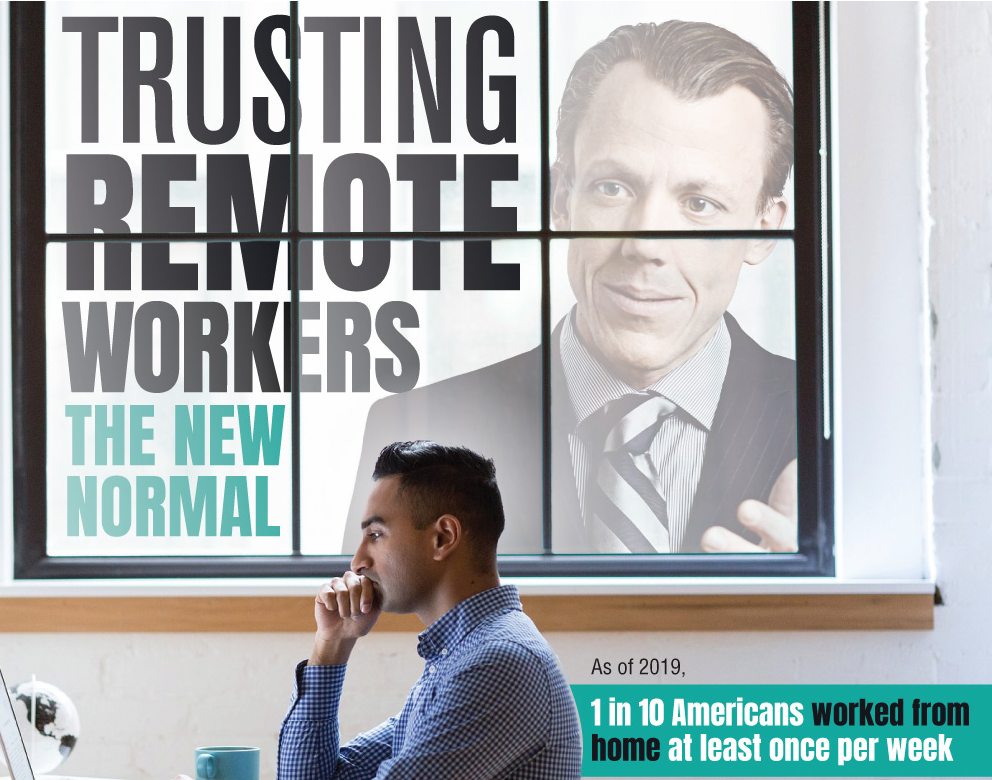Change is always scary, and it’s even scarier when you have no control over the situation. A lot of us are finding ourselves in that position right now when it comes to making the transition to remote work. Employers have no control over the pandemic and have to completely retrain their workforce to do their jobs from home, and employees who may not have had any previous experience working from home are suddenly having to turn their kitchen tables into offices. The transition is difficult for everyone, but it can go a lot more smoothly if there’s trust involved.
Why Trust Is Not A Natural Reaction Right Now
Because times are tough and emotions are heightened, trust is probably not the first thing that comes to mind during this difficult transition toward remote work. Employers who have never allowed workers to work remotely may feel that employees will try to take advantage of the situation, while employees who have never had to work remotely before may feel employers are going to judge them more harshly than usual.
There have been some examples of this lack of trust in the tonedeaf directives some managers sent out in the early days of working from home, from requiring immediate responses to messages to requiring employees to always answer the phone even if it’s from an unknown number. These directives sow the seeds of distrust and lead to breakdowns in communication and teamwork. There’s a better way to handle this transition.
Trust Is Essential For Success
For a lot of different reasons, being able to trust and show trust is going to be the backbone of making remote working arrangements work in the long term. We may not be able to get back to offices for quite a long time, so making remote work happen is probably the only way many companies will get to stay open and employees will get to keep jobs.
An atmosphere of trust builds people up and leaves them to figure out the best way to make remote working work for them. If you hire someone to work for your company, shouldn’t you already trust them to do the job you hired them to do? Showing them this trust, especially in difficult times, builds a stronger team in the long run.
Employees who feel trusted at work say they feel 106% more energy at work, and that’s not all. They also report less burnout, better overall satisfaction with their lives, significantly lower stress levels, and higher engagement in tasks when they are at work.
76% of workers report their best work days are when they achieve goals. Building an atmosphere of trust allows them to work toward their goals at their own pace and in their own way, which is a much better outcome than having to micromanage everyone over the finish line.
Working from home has become essential during this pandemic. 78% of workers say they will be healthier working from home, and 53% say that working from home will have a positive impact on their lives. Learn more about the importance of trusting remote workers below.



